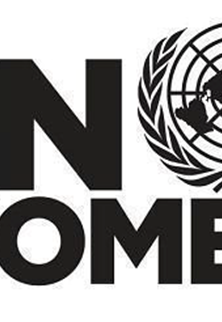Sweden at the 80th CEDAW session
WONSA is participating in order to highlight the importance of specialized care for victims of sexual violence
The Convention on the Elimination of All Forms of Discrimination against Women (CEDAW) brings the female half of humanity into the focus of human rights concerns. The Convention establishes not only an international bill of rights for women, but also an agenda for action by countries to guarantee the enjoyment of those rights.
The Committee on the Elimination of Discrimination against Women is the body of independent experts that monitors implementation of the CEDAW.
Sweden submitted their latest report to the CEDAW committee in June 2020, and the committee will hold its dialogue with Sweden on 22 October. Prior to this, NGOs can make statements on both the 18/10 and on 21/10.
- Everyone is welcome to watch the open informal session that takes place in front of all CEDAW members. This will be held on Monday 18/10 between 15-16.30 via UN's Web TV: http://webtv.un.org
- CEDAWs dialogue with Sweden in Geneva is on October 22 at 10-12, 13-17 and will be publicly webcasted on the following website: http://webtv.un.org/meetings-events/
WONSAs oral statement regarding the review of Sweden at the 80th CEDAW session
18th of October 2021
WONSA – world of no sexual abuse is a clinic which specializes in non-acute care of patients suffering from sexual trauma. The WONSA clinic is the only one of its kind in Sweden, and we operate without public funding. The Swedish regional health authorities claim that clinics like WONSA are not needed, however we can see patients dying while waiting for care in our constantly growing queue: right now, we have nearly 1500 patients waiting for treatment, which the Swedish government claims they can’t do anything about.
Regarding healthcare for victims of sexual violence, we want to highlight the following questions of the Tenth Periodic Report by the Government of Sweden on CEDAW:
Question 13: Sweden’s national strategy to prevent and combat men’s violence against women for the period 2017–2020 does not include any healthcare provisions for victims of sexual violence.
Question 14: In the national action plan to combat prostitution and trafficking, there is no mention of healthcare for victims of sexual violence.
Questions 19a and 19b:
- While the government recognizes that girls and women are more heavily affected by mental health problems than men and suffer from higher levels of sick leave than men, the government strategy within the field for mental health 2016-2020 does not include any strategy for improving the quality of healthcare for victims of sexual violence, and refuses to recognize sexual violence as a root cause for psychiatric diagnoses leading to sick leave.
- The Swedish Association for Local Authorities and Regions has not allocated any healthcare provisions for victims of sexual violence.
To summarize: sexual violence is not addressed anywhere as a healthcare issue: not in the National Strategy to prevent and combat men’s violence against women, not in the National Action plan to combat prostitution and trafficking, and not in the government mental health strategy. Swedish victims of sexual violence, after being subjected to a crime which violated their fundamental rights, are left without adequate healthcare to heal their injuries. A lack of understanding of sexual violence as a root cause for psychiatric diagnoses leading to sick leave also drastically decreases the possibility of sick leave compensation.
Note: The Swedish government states in their 10th periodic report that the government´s six gender equality policy goals are continuously monitored with the help of a set of 173 indicators. We note that only 2 out of 173 indicators measure exposure to sexual offences. There is no indicator measuring healthcare needs after sexual violence.
We want to highlight that without access to good quality healthcare for victims of sexual violence, Sweden cannot live up to its obligations under the following articles in the Convention: Article 2f; Article 3, Article 6, article 10a; 12.1, 13, and 15.1. We are more than happy to answer any specific questions regarding these articles, but due to limited time it’s enough to say that no person has as little access to their human rights as the one that is no longer alive. Thousands of patients at high risk of suicide and premature death are left without healthcare in Sweden today. Also, without adequate healthcare (Article 12) victims of sexual violence do not have the same potential for a career and studies (Article 10a), potential to enjoy and participate in political, social, economic and cultural life (Article 1), and they do not have equality before the law (Article 15.1). This hinders not only women and families, but society as a whole.
Without access to adequate healthcare for victims of sexual violence, it is impossible to provide gender equal healthcare, which is one of the six goals of Sweden’s gender equality policy.
We believe that a National Center for research, education and treatment for victims of sexual trauma is a necessity, and a concrete step towards gender equal healthcare. A national Centre can support all of the Swedish regions to implement an entire healthcare supply chain for patients of sexual trauma.
To conclude: Access to healthcare is a human right, even for victims of sexual violence. This right is violated in Sweden, every day, every minute. It costs lives. It's wrong. It is expensive. Giving victims of sexual violence access to an entire healthcare supply chain, on the other hand, is right, saves money, and is also easy through a National Center, which is just one decision away from becoming a reality.

